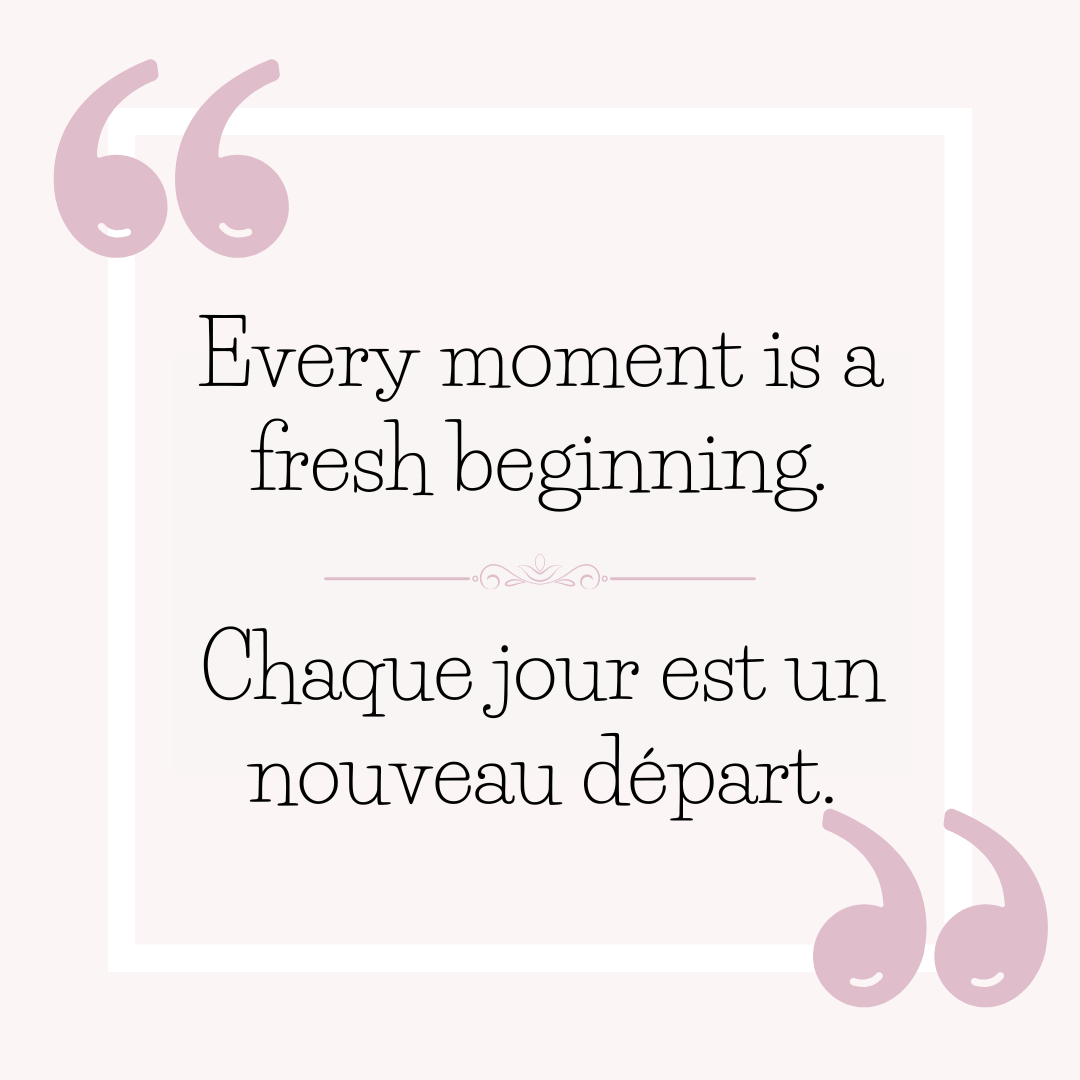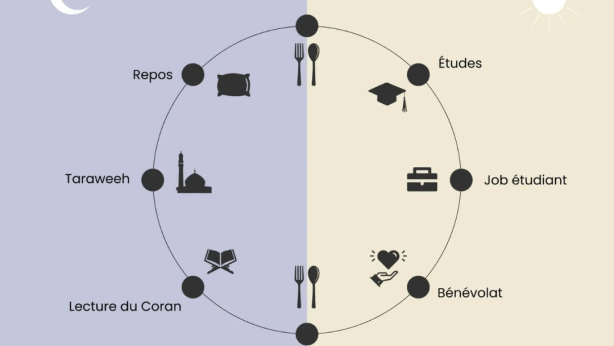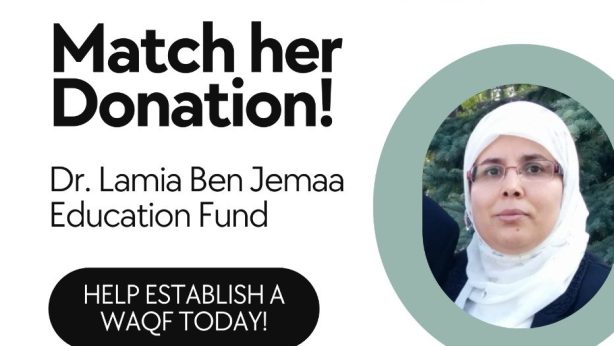Assessing New Year Resolutions and Preparing for 2023

By Abdullatif Bakbak, MAC President-Executive
(French version follows // la version française suit)
January 1, 2021 | As we welcome another Gregorian year, it’s an opportunity for us to reflect as a community, not because this particular day is of any special significance to us as Muslims, but because it’s a collective moment in our society where people become intentional about setting resolutions and attaining self-growth – a practice that is inherent to our tradition.
Improving our overall human condition is the essence of the Prophetic message, which gifted us a practical framework to develop ourselves and build a better relationship with our Creator and those around us. In a world of increasing materialism and decreasing spirituality, it’s more critical than ever to turn to this beautiful wisdom.
As believers, our lives are centred around Allah, the One. We understand the world around us, our purpose, and the meaning of our experiences in relation to what He intended. In order to maintain this conviction and to achieve self-improvement throughout the year, let’s consider the following three actions:
- Improving our connection with Allah
- Obligatory worship:
In an uplifting hadith qudsi, the Prophet (pbuh) narrated on behalf of Allah:
“ما تقرب إليّ عبدي بشيء أحب إليّ مما افترضته عليه”[i]
“…My servant has not worshiped me with anything more beloved to me than that which I have made obligatory upon him…”
This is a reminder of the importance of our obligatory worship. Let us commit ourselves to improving the quality and consistency of our daily prayers as well as our timely and full payment of Zakat. Let us also begin preparing our hearts for the month of Ramadan. We should engage in these acts with sincerity and with the awareness that they’re the most beloved acts to our Creator.
- Voluntary worship:
The beautiful hadith continues:
“ولا يزال عبدي يتقرب إليّ بالنوافل حتى أحبه”
“…My servant continues to grow closer to me with the nawafil (voluntary deeds) until I love him…”
Imagine with me that you and I gained Allah’s love. What greater gift could one hope for in this world and the next? Here Allah shows us that the way to His love is our endeavour in nawafil deeds. So, let us resolve to push ourselves in the coming year. Examples of resolutions may be committing to praying at least one sunnah prayer a day, praying in the masjid once a day, fasting three days a month, adopting a small daily wird of Quran or dhikr, or praying two short rukaas of qiyam after Isha or before Fajr. These are the acts that can lead us to the greatest prize: Allah’s love & contentment!
- Improving our connection with others
Islam has placed a critical importance on serving the people around us. Allah directly commands us to honour our parents with excellence.[ii] The Prophet (pbuh) has said, the best of you are the best to your family, and I am the best to my family.[iii] Your resolutions should include improving these important relationships. You should commit to calling or visiting your parents more regularly or serve them in more profound ways. You can also commit to specific practices that will make you a better spouse, a better parent, a better sibling.
Beyond our immediate family, the Prophet (pbuh) instructed us to serve everyone around us with. This includes our brothers and sisters in Islam as well as our neighbours, peers and co-workers. What are some ways you can foster these connections in your life?
The quality of our lives and health of our iman also depend on the types of relationships we maintain. Becoming a better person requires us to assess these relationships, to revive the ones that are healthy and important to us, and to sever the ones that are damaging and harmful. As you form your resolutions, it’s critical to question your relationships and to reflect upon their impact on your ultimate relationship, the one with Allah.
- Personal self-development
Finally, Islam instructs us to also prioritize our own personal development. Here are some important aspects:
- Character development (akhlaq): what is your character like? Do you consistently embody honesty, courage, compassion, trustworthiness, patience? Do you fall too often into arrogance, anger, envy, backbiting, Riyaa’ (seeking others’ admiration)? Where are you falling short? Choose an aspect of your character that you want to improve, reflect on the situations in your life where you behave in ways not aligned with your values, and commit to do better in future circumstances.
- Acquiring knowledge: Allah and the Prophet (pubh) emphasized the acquiring of knowledge as one of the greatest acts of a believer [iv]. Life-long learning has long been the tradition of our pious predecessors. What sacred knowledge can you acquire in the coming year? What local halaqa, dars or class can you commit yourself to in the coming year?
- Physical health: Our bodies have been entrusted to us by Allah, and we honour that trust by honouring our bodies. In the coming year, what positive habits do you want to adopt when it comes to your diet, exercise, sleep?
Importance of Habit Development:
Remember that most people neglect their New Year resolutions within a few short weeks of each year. The reliable way around this is to focus on habit building rather than forming lofty distant goals. In each of the categories above, think about a small positive habit (preferably daily) that is easy to commit to, and figure out a way to hold yourself accountable (preferably with a friend or family member). Once your habit solidifies, it becomes easier to improve and build upon it.
While positive habits may curb some of our negative ones, it’s important to actively asses these unwanted habits and make an effort to eliminate them. For instance, most of us spend far too much time on our phone, and many of us follow an unhealthy diet of food and sleep.
Oftentimes, resolving to address even one of these bad habits can have a remarkable impact on our lives.
Habit building is not easy, and if you seriously strive on this path, there will likely be many ups and downs. But remaining on the path despite the setbacks is a sign of strength and resiliency, and Allah loves and rewards those who strive for His sake.
In order to effectively build and maintain healthy habits, there must be an overwhelming will to do so. With perseverance and sincere intentions, Allah will facilitate our journey of personal nourishment and growth.
In Conclusion
It is within our power to improve our lives. We always turn to Allah (swt) to help us become better people. People who are dutiful to Him, dutiful to those around them and who are committed to self-improvement. Above all, we aim to lead lives that Allah is pleased with, and to earn his Love and Mercy through our striving and despite our inevitable shortcomings.
I ask Allah to bless you, your families, and our entire Muslim community in the year ahead. May Allah grant our ummah brighter days, and may He choose us to be vanguards for His deen who develop positive change inwardly and on the world around us.
[i] Here is the full hadith:
عن أبي هريرة رضي الله عنه ، قال : قال رسول الله صلي الله عليه وسلم : { إن الله تعالى قال : من عادى لي وليّاً فقد آذنته بالحرب، وما تقرب إليّ عبدي بشيء أحب إليّ مما افترضته عليه ، ولا يزال عبدي يتقرب إليّ بالنوافل حتى أحبه، فإذا أحببته كنت سمعه الذي يسمع به ، وبصره الذي يبصر فيه ، ويده التي يبطش بها، ورجله التي يمشي بها، ولئن سألني لأعـطينه، ولئن استعاذني لأعيذنه
On the authority of Abu Huraira (RA), the Prophet (pbuh): ‘Allah the all High said: I have declared war on whomever takes my ally as an enemy. My servant has not worshiped me with anything more beloved to me than that which I have made obligatory upon him. My servant continues to grow closer to me with the nawafil (voluntary deeds) until I love him. And when I love him, I become the hearing with which he hears, the sight with which he sees, the hand with which he strikes, and the leg with which he walks. If he asks Me, I would surely give him and if He seeks my protection I will surely grant it.
[ii] وَقَضَىٰ رَبُّكَ أَلَّا تَعْبُدُوا إِلَّا إِيَّاهُ وَبِالْوَالِدَيْنِ إِحْسَانًا ۚ إِمَّا يَبْلُغَنَّ عِندَكَ الْكِبَرَ أَحَدُهُمَا أَوْ كِلَاهُمَا فَلَا تَقُل لَّهُمَا أُفٍّ وَلَا تَنْهَرْهُمَا وَقُل لَّهُمَا قَوْلًا كَرِيمًا
Your Lord has ordered you to worship none except Him, and to be good to your parents. If either or both of them attain old age with you, do not say: “Fieon you”, nor rebuke them, but speak to them with words of respect. (17:23)
[iii] رواه الترمذي وابن ماجه عن عائشة رضي الله عنها قالت: قال رسول الله صلى الله عليه وسلم: خيركم خيركم لأهله، وأنا خيركم لأهلي
On the authority of Aisha (RA): The Prophet (pbuh) said: ‘The best of you are those who are best to their families, and I am the best to my family’.
[iv] Ayat and Ahadith on the importance of seeking knowledge:
يَرْفَعِ اللَّهُ الَّذِينَ آمَنُوا مِنكُمْ وَالَّذِينَ أُوتُوا الْعِلْمَ دَرَجَاتٍ ۚ وَاللَّهُ بِمَا تَعْمَلُونَ خَبِيرٌ
God will raise up, by many degrees, those of you who believe and those who have been given knowledge: He is fully aware of what you do. [Qur’an, 58:11]
إِنَّمَا يَخْشَى اللَّهَ مِنْ عِبَادِهِ الْعُلَمَاءُ ۗ إِنَّ اللَّهَ عَزِيزٌ غَفُورٌ
At is those of His servants who have knowledge who stand in true awe of God. God is almighty, most forgiving. [Qur’an, 35:28]
On the authority of Abu Dardaa’ (RA): I heard the Prophet (pbuh) say: ‘Whoever takes a path in search of knowledge, Allah will cause him to walk in one of the paths to Paradise. Indeed the angels will lower their wings in great pleasure with the one who seeks knowledge.” [Reported by Abu Dawud and Tirmidhi]
On the authority of Mu’awiya bin Abu Sufyan (RA): I heard the Prophet (pbuh) say: ‘If Allah intends goodness for a person, He gives him the understanding of the religion.’ [Reproted by Bukahri and Muslim]
Pour le français, cliquez sur la page #2.


